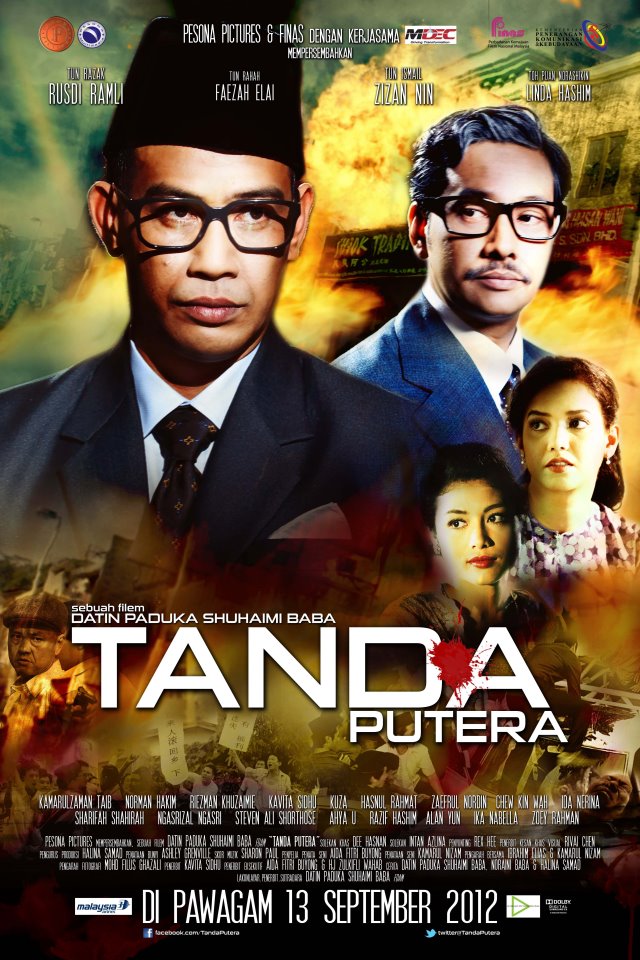The outcry by the DAP
over the screening of the movie Tanda Putera shows the party's practice
of selective prosecution, said MCA president Datuk Seri Dr Chua Soi Lek.
"While on one hand they champion the freedom of expression, on the other hand they are forcing cinemas not to screen the movie.
"The DAP adopts selective prosecution and are being double standard in tackling issues.
"I am sure Lim Guan Eng has not seen the movie either but his mouth has
already shot out absurdities and casting aspersions," Dr Chua said in a
statement on Friday.
Dr Chua said Lim, who is DAP secretary-general and Chief Minister,
should not deny the Penang people of making their own assumptions
regarding the movie.
"The people are matured enough to rationalise and distinguish what is good for them.
"This is what democracy is all about," he said.
He was responding to the banning of the movie at cinemas in Penang
following Lim's statement to the movie houses not to screen the movie.
Lim later issued a statement saying that the movie houses had been "advised" instead of "ordered" not to screen the movie.
Dr Chua said he supported the proposal by the Youth and Sports
Minister Khairy Jamaluddin to organise mobile outdoor screenings of the
film.
"If they want to ban Tanda Putera, they should ban both movies.
"If they want to show the movie, they should show both. Then, people can
make up their minds," he said during a press conference here Thursday
when asked his opinion on the decision to screen controversial film
Tanda Putera.
Directed by Datin Paduka Shuhaimi Baba, the film depicts the events
leading up to the May 13, 1969 riots, focusing on Malaysia’s second
Prime Minister Tun Abdul Razak Hussein and his deputy Tun Dr Ismail
Abdul Rahman.
The New Village, meanwhile, is set against the backdrop of 1950s British
rule in Malaya, and depicts a love story between a village girl and a
young communist guerrilla, offering a glimpse into the lives of Chinese
citizens during the Malayan emergency.
Dr Mahathir, during the press conference also reiterated his stand
against the Trans-Pacific Partnership Agreement (TPPA), saying that it
could push the country into another financial crisis.
"I hope the government will not accept the TPPA because it will mean
that we would no longer have currency control. It may result in another
currency crisis," he said.
He added that the country was now experiencing a very high deficit.
"We have always had a surplus since 1998.
"We have to cut down on local expenditure. We cannot spend too much, especially money we don't have," he said.






























 Malaysian Ringgit Converter
Malaysian Ringgit Converter























